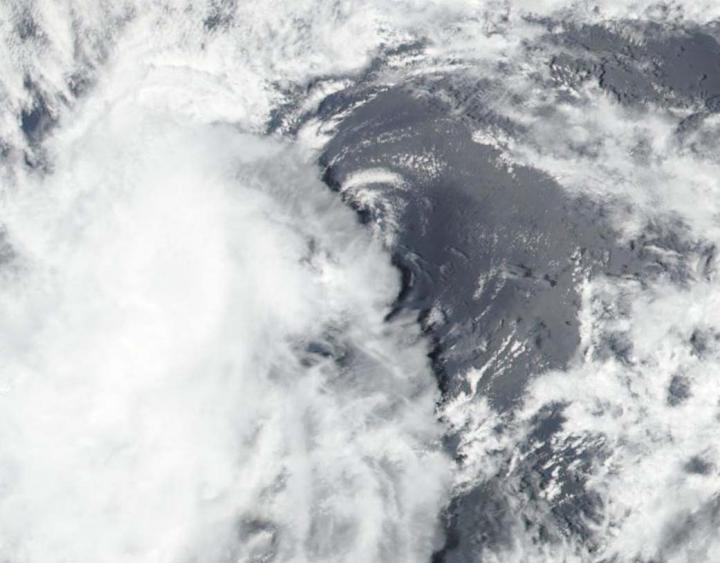
Credit: Credit: NASA Worldview, Earth Observing System Data and Information System (EOSDIS)
NASA-NOAA’s Suomi NPP satellite provided forecasters with a visible image of a struggling Tropical Depression 10E in the Eastern Pacific Ocean. Wind shear is preventing the storm from intensifying into a tropical storm.
On Aug. 13, the Visible Infrared Imaging Radiometer Suite (VIIRS) instrument aboard Suomi NPP revealed northeasterly wind shear had exposed the center of circulation and pushed the bulk of clouds and precipitation to the southwest of the center. The depression has maintained a small ragged band of convection in its southwest quadrant.
Vertical wind shear, that is, winds outside of a tropical cyclone at different heights in the atmosphere (the troposphere), pushes against a tropical cyclone and tears it apart.
National Hurricane Center forecaster David Zelinsky noted, “Strong northeasterly shear should continue to limit the development potential of the cyclone, but upper-level winds could become less hostile in a few days.”
Tropical Depression 10E on Aug. 14
At 11 a.m. EDT (1500 UTC) on Aug. 14, the center of Tropical Depression 10E was located near latitude 13.6 degrees north and longitude 131.9 degrees west. 10E is centered about 1,575 miles (2,535 km) west-southwest of the southern tip of Baja California, Mexico.
The depression is moving toward the west-southwest near 6 mph (9 kph). A slow drift toward the west-southwest is expected today, followed by a turn toward the northwest over the weekend. The estimated minimum central pressure is 1004 millibars. Maximum sustained winds are near 35 mph (55 kph) with higher gusts. Little change in strength is forecast during the next few days.
###
NASA Researches Tropical Cyclones
Hurricanes/tropical cyclones are the most powerful weather events on Earth. NASA’s expertise in space and scientific exploration contributes to essential services provided to the American people by other federal agencies, such as hurricane weather forecasting.
For more than five decades, NASA has used the vantage point of space to understand and explore our home planet, improve lives and safeguard our future. NASA brings together technology, science, and unique global Earth observations to provide societal benefits and strengthen our nation. Advancing knowledge of our home planet contributes directly to America’s leadership in space and scientific exploration.
For updated forecasts. visit: http://www.
By Rob Gutro
NASA’s Goddard Space Flight Center
Media Contact
Rob Gutro
[email protected]
Original Source
https:/




